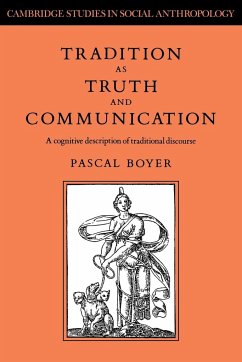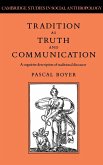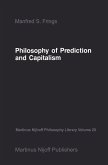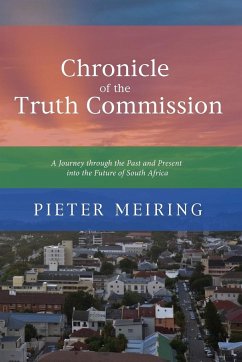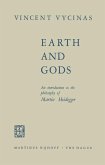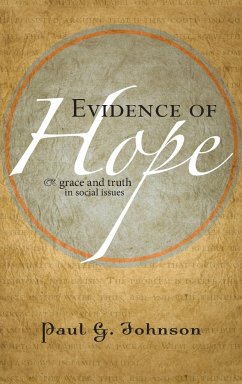Tradition as Truth and Communication deals particularly with oral communication and focuses on the privileged role of licensed speakers and the ritual contexts in which certain aspects of tradition are characteristically transmitted.
Tradition is a central concept in the social sciences, but it is commonly treated as unproblematic. Dr Boyer insists that social anthropology requires a theory of tradition, its constitution and transmission. He treats tradition 'as a type of interaction which results in the repetition which results in the repetition of certain communicative events', and therefore as a form of social action. Tradition as Truth and Communication deals particularly with oral communication and focuses on the privileged role of licensed speakers and the ritual contexts in which certain aspects of tradition are characteristically transmitted. Drawing on cognitive psychology, Dr Boyer proposes a set of general hypotheses to be tested by ethnographic field research. He has opened up an important new field for investigation within social anthropology.
Table of contents:
Preface; Acknowledgements; 1. Conserved world-views or salient memories?; 2. How to think with 'empty' notions; 3. Criteria of truth; 4. Customised speech (I): truth without intentions; 5. Customised speech (II): truth without meaning; 6. Customised persons: initiation, competence and position; 7. Conclusion and programme; Notes; Bibliography; Index.
Hinweis: Dieser Artikel kann nur an eine deutsche Lieferadresse ausgeliefert werden.
Tradition is a central concept in the social sciences, but it is commonly treated as unproblematic. Dr Boyer insists that social anthropology requires a theory of tradition, its constitution and transmission. He treats tradition 'as a type of interaction which results in the repetition which results in the repetition of certain communicative events', and therefore as a form of social action. Tradition as Truth and Communication deals particularly with oral communication and focuses on the privileged role of licensed speakers and the ritual contexts in which certain aspects of tradition are characteristically transmitted. Drawing on cognitive psychology, Dr Boyer proposes a set of general hypotheses to be tested by ethnographic field research. He has opened up an important new field for investigation within social anthropology.
Table of contents:
Preface; Acknowledgements; 1. Conserved world-views or salient memories?; 2. How to think with 'empty' notions; 3. Criteria of truth; 4. Customised speech (I): truth without intentions; 5. Customised speech (II): truth without meaning; 6. Customised persons: initiation, competence and position; 7. Conclusion and programme; Notes; Bibliography; Index.
Hinweis: Dieser Artikel kann nur an eine deutsche Lieferadresse ausgeliefert werden.

